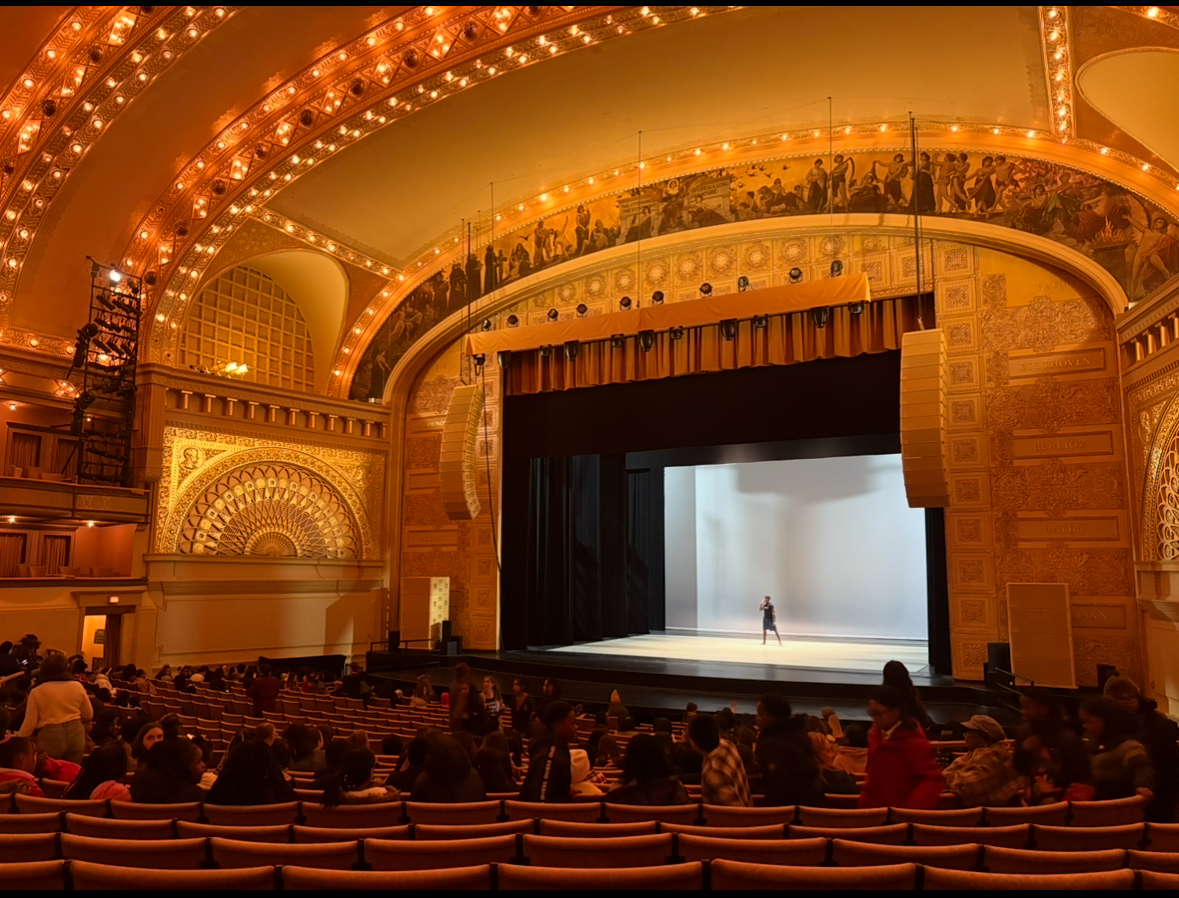Olympics for the better
by Blake McCracken
You walk out on the mat, cameras blinding you but doing nothing to deafen the roar of the fans. You’re in Paris, France, at the 33rd national Olympic games. Lots of people like to cast the Olympics as some evil, carbon-producing, town-destroying behemoth. That can’t be farther from the truth.
The Olympics have changed dramatically since ancient Greece. Sandaled feet against stone have become tennis shoes against metal bleachers, togas have been covered by brand logos, new sports have been added, and the viewers have doubled a million times over. The most profound change in recent years has perhaps been the increased efforts to go carbon neutral.
The Paris Olympics only produced 1.58 million teqCO2, which is 55% less compared to the 2012 London Games, according to the European Union. The games were officially declared carbon-neutral just two months ago. Guess cardboard beds, renting equipment, and following the principles of the Paris Climate Agreement paid off.
While carbon emissions have decreased, the economic incentives of hosting the Olympics have only increased. The Paris Olympics generated a staggering $12.2 billion from tourism, restaurants, and stores. The money flowing into the French economy dropped interest rates and allowed the government to invest in infrastructure.
The Paris Olympics was the first ever Olympics to have an equal number of men and women olympians, thanks to the distribution of an equal number of quota places to female and male athletes by the International Olympic Committee (IOC). When large organizations such as the Olympics value and strive to achieve gender equality, the issue becomes more prominent. The Paris Olympics and the IOC set a standard that every other Olympic game has to follow, and that standard is giving equal opportunity to both men and women athletes.
What’s perhaps most heartwarming is the sportsmanship exemplified in the Olympics that sets a precedent for all sports everywhere. When North Korean and South Korean table tennis athletes took a selfie on the podium, decades of icy relations were warmed. When a Chinese runner stopped in her tracks to comfort a South Sudan 100-meter runner who had collapsed, the crowd breathed a sigh of relief. When a celebrating USA soccer player sat on the pitch and hugged an Australian athlete, smiles grew.
The Olympic flame isn’t the only thing that shines brightly over Paris. It’s the constant endeavor of the Olympic Games to better the world.
The Olympics effect
by Bell Velez
Every four years a country is given the opportunity to host the world-renowned event in one of their cities. The Olympic Games are a longstanding tradition that has gradually become these mega-events, but does their infamy hide the real long-standing effects?
Recent reforms made by the International Olympic Committee have made progress in reducing some issues and damages left behind, but still certain problems persist, making the games unsustainable in the long term for the city or country that’s hosting.
Negative consequences of hosting the games include overpriced budgets that harm local taxes and prices, oversized infrastructure that is often left abandoned, and aggressive security that often leads to the eviction of residents. In spite of the promotion of sustainability and the three R’s (reduce, reuse, recycle), there’s been multiple cases of greenwashing, which is the act of making false or misleading claims about environmental practices or products. According to the Rainforest Action Network, Tokyo 2020’s use of large quantities of plywood has been linked to rainforest deconstruction for the building of the Olympics, which is a violation of its commitment to sustainability.
Paris showed some success at honoring this vow by utilizing already existing venues, which is great for ecological and economic improvement. In many cities the games were held in the past, like Rio 2016, there were areas crowded with stadiums that were too large and too expensive to upkeep, which was one of the reasons hosting the games has had a pattern of going over budget.
Despite Paris’ seemingly wonderful progress, according to the Georgetown Journal of International Affairs, about 400 migrant workers were evicted to make room for the Olympic commune because they decided to build on the northern part of the Seine which is a well known disadvantaged economic area. No alternative house resources were made available to them, alongside over-policing with intense military presences, creating an intimidating atmosphere for locals.
With the Olympics comes world-round pilgrimage, which means booming business.
Overall, the Olympics draw major cash flow with tourists using up hotels, restaurants, and businesses but it doesn’t compare to the millions already lost and used during the whole preparation. According to Slate, who published an interview with a small businesswoman: the woman regrets keeping her doors open for the Olympics due to her part of town being practically deserted and the artisan food market that was supposed to be a big sale event for her was canceled. Because of the games, she lost more money than gained. Tourists renting hotels and Airbnbs also raised the prices for the overall cost of living for locals, making it nearly impossible for them to live their everyday lives in their own city.
The Olympics are a long-held tradition that represent unity, sportsmanship, and peace, but at what expense? The overly extravagant showmanship that comes with hosting the games has become too much of a burden for the people of the city in the world, and it is not worth the long-term effects they bring to society economically, socially, or ecologically.



















![Movie poster for '[Rec]" (2007).](https://www.lionnewspaper.com/wp-content/uploads/2023/04/rec-640x900.jpg)





